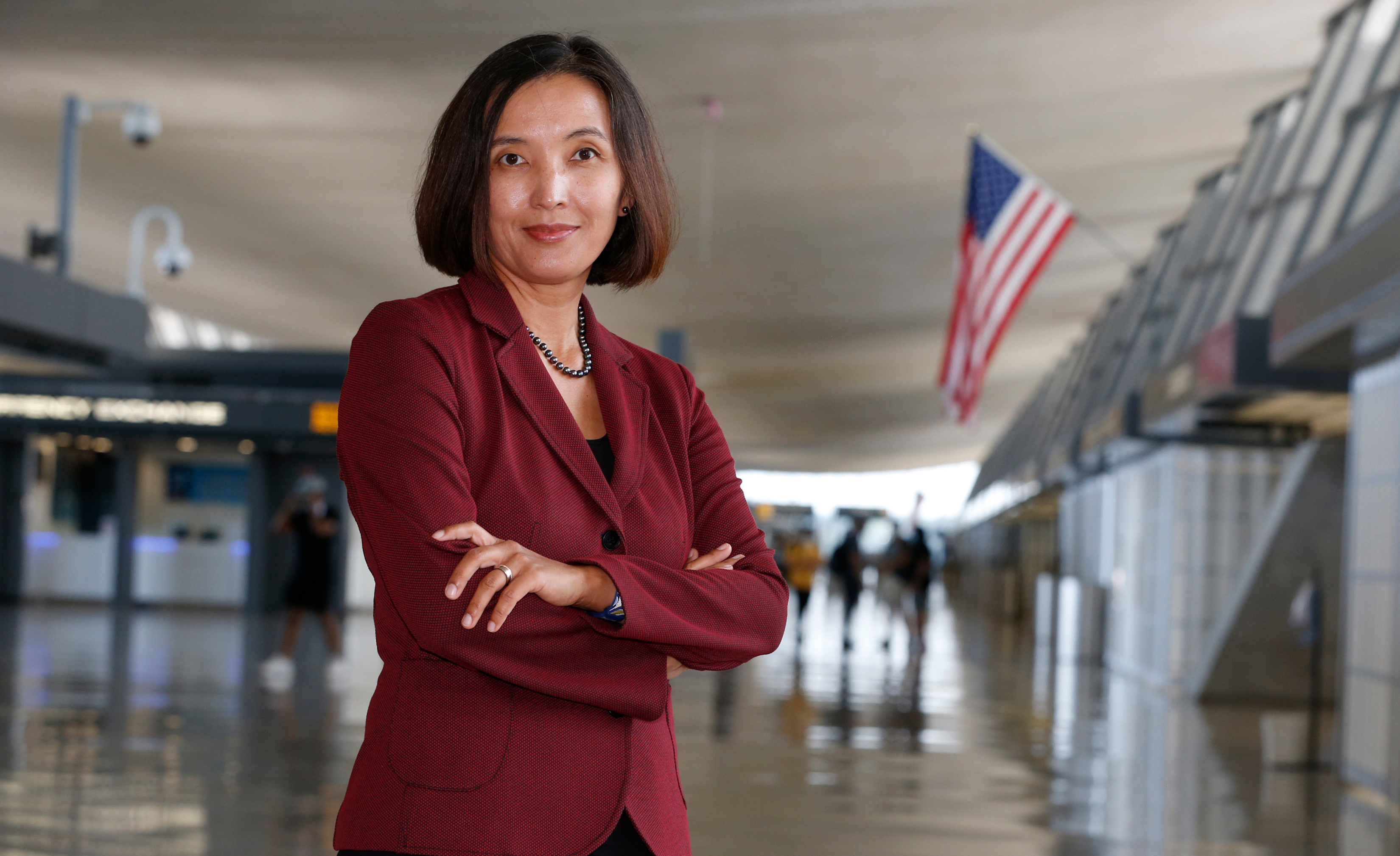News
Identifying opportunities to improve immigrants’ lives in the commonwealth

What are the key barriers that limit immigrants’ successful integration in Virginia, and how can they be eliminated? It’s a multifaceted challenge that associate professor Saltanat Liebert, Ph.D., discussed during a virtual Wilder School Lunch and Learn presentation entitled, “Immigrants in Virginia: Opportunities and Challenges.”
Based on the findings of “Barriers to Integration of Virginia’s Immigrants,” commissioned by the Office of New Americans at the Virginia Department of Social Services, Liebert and her colleague (and Wilder School alumnus) Grant Rissler, Ph.D. discussed data-driven outcomes for immigrants. The session was moderated by civil rights attorney and Wilder School alumna Mona Siddiqui, J.D., Ph.D. (Ph.D. ’22).
Watch the full presentation on the Wilder School YouTube channel
For Liebert, at the highest level, immigrant integration can be understood as the process of economic mobility and social inclusion for immigrants and for their children.
Since 1990, Virginia's immigrant population has more than tripled from 312,000 to over 1 million in 2020. Immigrants in Virginia possess an estimated $33 billion in spending power and pay $13.4 billion in taxes annually, and Virginia now ranks as 15th in the nation for immigrant populations.
Virginia has become an attractive destination, and Liebert and Risslers' research revealed that from economic indicators, Virginia’s immigrant populations generally outperform the national average.
Despite this, outcomes for immigrants are disparate and disproportionate to those of native citizens. For example, only 6% of U.S. born Americans do not have health insurance, compared 35% of non-citizen immigrants. Access to education, housing, jobs, governmental resources, and more are all key needs for Virginia’s immigrants.
To better understand and articulate these key barriers, the research team interviewed 48 organizations in Virginia that provide services to immigrants as well as conducted interviews with 46 immigrants from across the globe, including focus group discussions in Spanish, Dari (one of the main languages in Afghanistan), Mandarin, French, Vietnamese, and Russian.
To help spatially visualize immigrant demographic data in Virginia, Liebert and Rissler also created data visualization maps combining Geographic Information Systems (GIS) tools with census data.
The researchers evaluated data based on seven dimensions of integration: sociocultural, socioeconomic; political and civic; legal status; health; family support; and geography.
“The biggest theme that we heard from immigrants was that they don't know where to find information about services, benefits, and other resources that are available to them,” said Liebert.
Without access to these critical resources, immigrants aren’t able to most effectively contribute their social capital. A common barrier to success is “brain waste,” where immigrants do not use, or they significantly underutilize their education and skills.
“Many migrants become trapped in poorly paid or exploitative jobs, and this is because either they are undocumented or they have limited knowledge about how to find better work,” said Liebert.
“They often experience trauma, and they need to access mental health services. These are hard to find even in English, let alone in other languages,” she said.
The most frequently mentioned concern of immigrants is the language barrier. Liebert and Grants’ key recommendation for success is to expand and create new places where new Americans or immigrants can access information in several languages and in a variety of ways that aren’t dependent on technological access.
The researchers shared that it is critical to provide access to high quality, affordable English language classes at various locations for working adults and for stay home parents while their children are at school. A second key recommendation is to improve language access to services at government agencies. Liebert pointed to previous work by the Wilder School, “Ensuring Language Access Equity in Virginia Government Services” as a prime example of these needs.
Liebert pressed the collective perception that K-12 public schools are one of the most important and one of the most effective tools for integration.
“The quality of education and the role that schools play often as being one of the most trusted and accessible places for immigrants to connect and to be working forward on their immigrant integration journey is is very important to keep in mind,” said Rissler.
In addition to outlining additional strategies, Liebert and Rissler fielded questions from the audience on a range of additional topics impacting successful immigrant integration.
Watch the full presentation on the Wilder School YouTube channel
About the speaker
Saltanat Liebert, Ph.D., is an associate professor at the L. Douglas Wilder School of Government and Public Affairs at VCU. Prior to joining the Wilder School, Liebert taught at American University in Washington, D.C., and worked for the World Bank, United Nations and the International Organization for Migration in Kyrgyzstan, Kazakhstan, Austria and the U.S. She has served as a consultant on governance, migration and human trafficking issues, working with such institutions as the Protection Project of Johns Hopkins University and the International Research and Exchanges Board. Liebert has been interviewed by media outlets such as Voice of America, Radio Free Europe/Radio Liberty and BBC World Service.
About the moderator
Mona Siddiqui, J.D., Ph.D. (Ph.D.’22), is a civil rights attorney and alum of the public policy program at the Wilder School, where her dissertation research centered on civil rights for immigrant communities. She has spent most of her career in government service, currently serving as a trial attorney in the Civil Rights Division of the Department of Justice. Prior to this role, she served as a deputy chief diversity officer and senior policy adviser on immigrant integration during Gov. Ralph Northam’s administration and was appointed to the Virginia Asian Advisory Board during Gov. Terry McAuliffe’s administration. Born in Pakistan, she became a naturalized citizen at the age of nine and is a longtime Richmond resident.